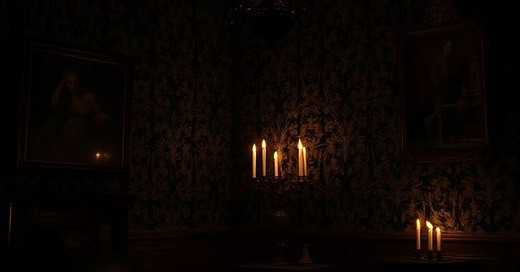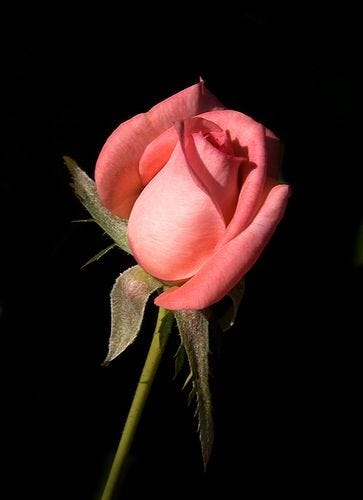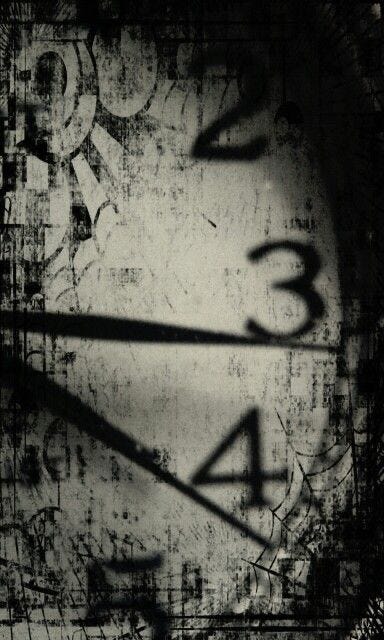Где-то дом, напрокат там есть лица
Но в глазах не включается свет
Только стрелки часов, как ресницы
Каждый миг вытирают твой след.
И везде зеркала, кинешь взор в них -
Видишь кадры чужого кино
И друзья говорят, как актеры,
Что забыли все роли давно.
А под домом река ловит в невод
Лунный свет, по пути в океан
И глухим остается к сиренам,
И немым, корабля капитан.
И в полуночи в доме мне снится
Как ты плачешь, забрав меня в плен
И хранит стыд мой спальня-темница,
И любовь заперта между стен.
Я прикован упрямою клятвой,
Тщетно все, и не выйти теперь.
Стань как нож, будь палач мой заклятый
Лишь вернись, -и откроется дверь.
**** This is my upteenth take on a poem by
( the original can be found here.)**I spent hours upon hours on this somehow, trying to do my best, to catch this, to capture that-and I can’t still.
But yesterday I caught something else, something incredibly important, the “why” of me not liking my work yet. Now I don’t know what to do, in case something can be done.
So I wonder, dear readers-when you read this-whether you see this “why”? I’d really love to hear your thoughts, suggestions, maybe your own takes?
It would take me a second to point out to you the main problem with my translation -strangely, I’m quite proud of putting my finger on it, so to say. I just really would love to see what you think, first.
I’ll tag several people, who might be more interested, including Paul, of course.
As always, please be respectful to the original poem -especially as all the faults are mine, and mine only, in an attempt to translate. Thank you again, Paul, for bearing with me.
, , , , . , , I’m sure there are others, -all your opinions is highly valued, and welcomed.And if you read it as a separate poem-thank you for reading (and commenting, if you feel like it) 🤍
***To the readers, who might be interested in my previous translations of Paul’s poems,- here are some links to the ones I feel comfortable sharing :
Let's Go Again
Пойдем опять с тобою К кромке пруда Где обрывается дорога И блестит вода Где осины дрожат И воздух стоит Над ними, плотно соткан Из печальных молитв Навестим опять Маленький дом С островерхой крышей С давно пустым очагом Куда спускаются птицы И гнезда вьют Создают озабоченно Странный уют И окружает покосившийся Старый забор Этот маленький дом И м…
"As If She Still Is Here" (2)
Лежит она и день и ночь Печальна и одна Тайн нет, сны улетели прочь, И плоть обнажена. С костями корни трав сплелись Вечны, как щебет птиц. И розы прорастают ввысь, Между ее глазниц. Пронесся дождь-на лепестках Появится слеза, Как будто плачут по любви Потухшие глаза Как будто здесь еше она, И ей раскрыт секрет О том, что нет любви конца, И значит …
Tick-tock
1) В сумерках, где растворяется день Воспоминанье, сверкнувши лучом, переходит в тень И балеринкой время кружит На кончике часовых пружин И каждый "тик так" сопровождает пока Шаги идущего старика, Все дома и все улицы, в окнах свет- Будто свидетели прожитых лет И время уходит, отливом, но Как рифма, вспыхивает еше окно, И в ритмах вечного “почему” Ко…







Your talent is indisputable in this poem. I don't remember, whether I read Paul W. poem, but I am going to read it, of course), but without knowing about translation, this poem is in your style. Theme of loss, sadness strengthen linguistically by your 12-time using "t" letter as a sound in your first stanza. OK. All the comparisons m.b. came from Paul W.. but rhythm and rhyme came from you and made the poem very emotional. I don't want to diminish Paul W.'s talent, it's simply by nature, Russian language is more poetical. I never thought about it before I have to translate for my essays about Russian poets. Of course, every language has its own advantages, in poetry I prefer Russian. If you are worry about a gender- m., f.,- in poetry, linguistically, it's not important.
I liked it as both standalone and translation.